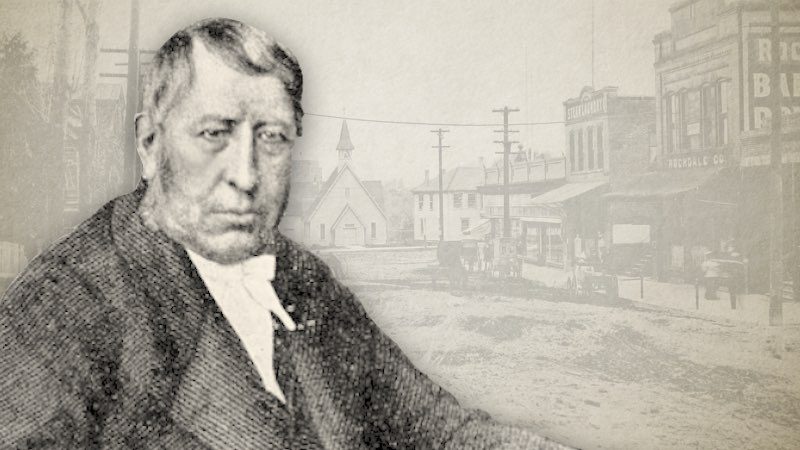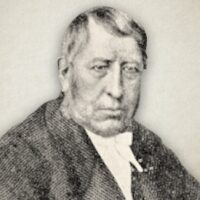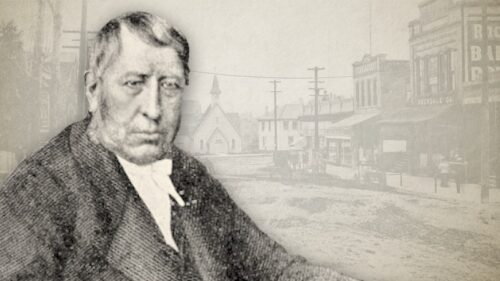
John Kershaw: A Preacher Of Grace
Gospel Standard 1871:
Dear Sir, I do not wonder at the strong terms of approval in which you speak of the late Mr. Kershaw’s autobiography. I have read it with deepest interest. There is one feature of the work that specially commends itself to my mind; that is, its freedom from rancour and bitterness. Even where he differs, he seeks to concede as much as possible to his opponent, without compromising his own character or principles.
There is one fact in reference to this dear departed servant of God which, with your permission, I will name, believing it will be of interest to your numerous readers. In the early spring of 1841, Mr. Kershaw was supplying the pulpit of Great Alie Street. When preaching one Sunday morning, he was led into a very special line of thought and utterance, which, as he said, he could not account for but upon the belief that there was some poor soul then present in the depths of trouble and exercise. He spoke pointedly and peacefully to such case; and it seemed as though it were a voice direct from above, such was the unction and the savour and the dew with which the dear man’s words were attended. Although Mr. Kershaw knew it not, there was one at least present in the very depths of anguish. He had just buried two dear children, and the loved companion of his early manhood had that very Sabbath taken to the bed from which the hand of death was speedily to release her, after suffering months in consumption. That morning was a memorable one, and the preacher was ever afterwards endeared as having unconsciously preached what was considered by one of his hearers his ordination sermon. Many years afterwards it was the privilege of that hearer to shake hands with the man of God in the vestry of the self-same chapel.
It warms my too-usually cold and thankless and unbelieving heart, dear Sir, to think of the goodly company of honoured servants of the Lord that so blessedly finished their course, and have now sat down with Abraham and Isaac and Jacob in the kingdom of our Father above. There is dear Henry Fowler, whom you and I (though then strangers to each other) used at the same time and place to hear. Then there were dear Mr. Gadsby, Mr. Warburton, Mr. Turner, Mr. Silver, and, though last not least, Mr. Philpot ah! and how many more whom we used to hear and love too, gone gone home! The conflict over! The victory won! All tears for ever dried! All temptations for ever o’er! The world vanquished! Satan silenced! And nought but uninterrupted and everlasting bliss their portion!
Well, what a mercy it is that “they without us should not be made perfect.” O! May we not say now, as we often sang, years ago, in dear Gower Street chapel, notwithstanding all present trials and conflicts, and flesh-and-blood-crushing weights and anxieties,
“Eternal joys shall soon repay
The sorrows of the good old way.”
Wishing you all the wisdom, grace, and strength you need for your arduous position,
I am, dear Sir and Brother in Christ,
The humble Hearer just now alluded to,
D. A. Doudney
St. Luke’s, Bedminster,
Dec. 14, 1870.
John Kershaw (1792-1870) was a Strict and Particular Baptist preacher. He was appointed the Pastor of Hope Chapel, Rochdale, serving this position for fifty-three years. John Hazelton wrote of him:
“His autobiography is one of the best books of its kind and one striking incident we will quote. It is his account of his interview in Edinburgh with Dr. John Duncan, often called "Rabbi" Duncan, because of his profound knowledge of Hebrew. Dr. Duncan (1796-1870) was Professor of Hebrew in New College, Edinburgh, and was a man of the most acute and profound intellectual powers, and at the same time a deeply spiritual and Scriptural preacher. In learning and associations he was at the antipodes of plain John Kershaw. In November, 1861, Mr. Kershaw preached in Edinburgh, arrangements having been made through Lady Lucy Smith, who was desirous that his original and powerful ministry should be exercised there. He writes:—"Another of my visitors was Dr. Duncan, who I was told by one of the ministers understood fourteen languages and that there was only one in the City who surpassed him in learning. He told me he had heard me preach three sermons, and he quite agreed with me in every statement that I had made, both in doctrine, experience and practice, save one, and that I had not fully entered upon, namely, 'the extent of the call of the gospel.' He candidly told me that his human learning had for years past been a great hindrance to his coming to a saving knowledge of the truth, and he had proved Paul's words, that the world by wisdom knew not God; and referring me to 1 Cor. 1:21,22 said he was for a long time like a wandering star or a ship at sea without a compass, ready to settle in every 'ism'—sometimes Arianism or Socinianism; and sometimes his mind was bordering upon infidelity. He declared himself much ashamed of many of his theological productions. When it pleased the Lord to work in his soul by the power of the Spirit he was for a long time in a distressed state, not knowing what to do to get peace and comfort. A conversation with another minister was made useful to him and he was enabled to go to the feet of Jesus as a little child and beg Him to teach him, a poor ignorant sinner, by His Spirit and His Word. The Lord graciously heard prayer and revealed Himself as his Saviour and Redeemer. We spoke of Scott's 'Force of Truth,' in which the author confessed he had been priding himself on his human attainments, opposing the doctrines of grace, and despising his neighbour, that dear man of God, John Newton, who eventually was made a blessing to him; also of John Berridge, who preached some years before the Lord stripped him and caused him to flee to Jesus for refuge. The conversation I had with this man I hope never to forget."
John Kershaw Sermons




